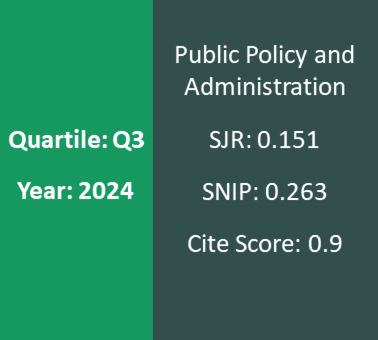Public Policy and Public Administration: Development, Structure and Reciprocity
Keywords:
public policy, public administration.Abstract
Public policy is a process about selecting strategies and making choices. Public policy making include some steps –
getting of agenda, policy formulation, policy adoptions, policy implementation. It must be also evaluated to see the
intended results, to revise existing and future public programs and projects. Public policy can be studied as producing three
types of policies (distributive, regulatory and re-distributive) related with decision making process. Public administration is
the set of processes, structures, functions, methods and procedures. Public administration is the formulation and
particularly implementation of public policy and the examination of the strategies and choices associated with that process.
Public administration also can be defined as public programs and projects, profession and as academic field of study.
There is no clear separation between administration and politics in the development of government policy and public
administration. Administrators engage in political acts by recommending legislation as much as by making policy
decisions in carrying out the laws. The administrators understanding of managerial issues and policies places them in a
position of substantial expertise, while their knowledge of administrative and legal procedures helps them by suggesting
ways of managing and enforcing the laws. The most modern forms of governance, administrative innovations allow us to
assume that legislative and implementing contents of institutional activity today acquires new specific features. Executive
bureaucratic structures using expert-consultation services, get more and more possibilities to really influence not only the
implementation of policy and the estimation of activities, but also to directly influence the preparation of public sector
directions and strategy.





